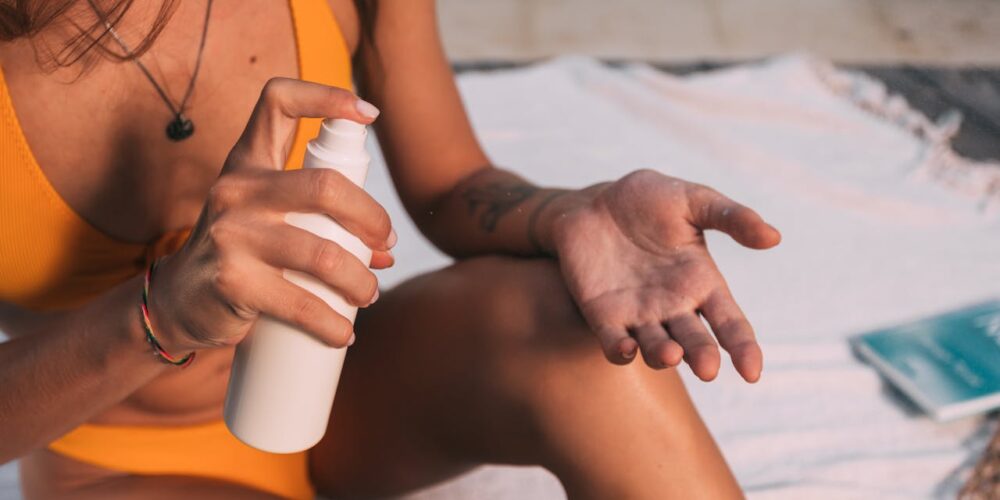
by Ali Anne Johnson & Kris Francefort
When choosing a sunscreen, it’s important to be aware of certain ingredients that may pose health concerns. Just as you read food labels, it’s important to read labels on the products you put on your skin.
Also consider avoiding sunscreens that pose environmental concerns. Many common sunscreens are known to cause coral bleaching and harm marine life and ecosystems leading to restrictions and bans in some locations. If it harms marine life, it harms you!
Here are some ingredients to avoid:
- Oxy/Avo benzone, Octinoxate, and Octocrylene: Linked to hormone disruption and allergic reactions. They can penetrate the skin, cause skin irritation and enter the bloodstream. They are also potential carcinogens, but more research is needed.
- Retinyl Palmitate (Vitamin A Palmitate): This ingredient can increase skin sensitivity to the sun and may accelerate the development of skin tumors and lesions when exposed to sunlight.
- Parabens (Methylparaben, Propylparaben, etc.): Parabens are preservatives that can disrupt hormone function and are associated with reproductive toxicity and breast cancer.
- Phthalates: Often used to enhance fragrance, phthalates are endocrine disruptors linked to hormone, reproductive and developmental issues.
- Fragrance: Undisclosed mystery ingredients that can cause skin irritation, allergic reactions, and may contain harmful chemicals like phthalates.
- Homosalate: This UV filter can accumulate in the body and disrupt hormones. It may also cause skin irritation.
- Propellants: Associated with aerosol based sunscreen that may contain butane.
Sunscreen Marketing
Don’t be fooled by marketing on sun care products. Due to the attention on sunscreens and their effect on the environment many products will say “Reef Safe” or “Paraben Free” as they don’t contain chemicals directly related to causing harm, however they still contain some chemicals that may be toxic. For instance oxybezone is know to be toxic to reefs so it has been replaced by avobezone which a growing body of research has suggested may actually be harmful to reefs.
What are the best sunscreens?
The best are non-nano mineral sunscreens that are zinc oxide based. Also look for European or Korean sunscreens that contain Tinosorb S or Tinosorb M. They are high quality chemical sunscreen ingredients with the best broad spectrum coverage and blend perfectly into the skin with zero white cast.
When selecting a sunscreen, consider your specific needs, such as skin type, any skin conditions, and the activities you’ll be doing. It’s also important to apply sunscreen correctly and reapply every two hours, or more frequently if swimming or sweating, to ensure maximum protection.
Don’t stress about always having quality
If you are out and about, don’t have access to your preferred mineral sunscreen, and you know you’ll be in the sun for a prolonged period of time, just use a conventional, chemical sunscreen.
While we are not a fan of these for the reasons stated above, an occasional use is unlikely to have any meaningful impact, and we do know that there can be lasting impact from serious burns.
Recommendations from Lara Adler, Environmental Toxins Expert:











Leave a Reply